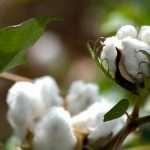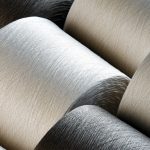
Recycled Cotton
Open-End Yarn From Pre-Consumer Waste
Waste from production is often too good to let go. Reuse is a better solution. We refurbish the waste and spin it together with virgin fibers to bring it back to life.
We offer our OE yarns with and without GRS certification in Nm 6 to Nm 30 in bleached or raw white. These can also be spun in blends with, for example, recycled polyester.
For production areas such as sportswear or socks, we also recommend finishing the yarn with our innovative Feelfresh technology.














